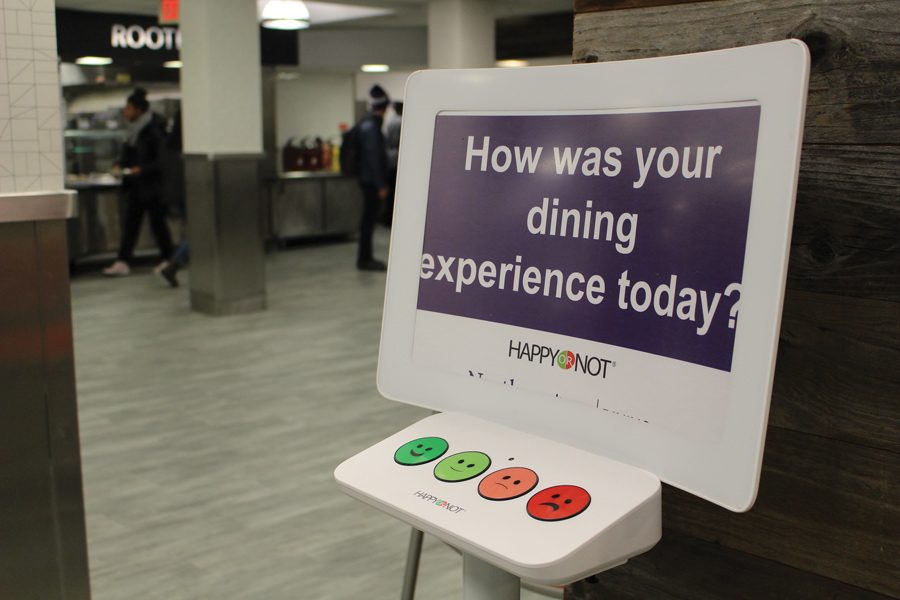As Northwestern Dining halls reopen, students express concerns about COVID-19 safety protocols
Daily file photo by Evan Robinson-Johnson
To visit any dining hall on campus, students have to make reservations, which are spaced out in 15-minute intervals and have a cap of 40 to 50 students each.
January 26, 2021
Northwestern has overhauled the dining halls, which reopened last week after the quarantine period Wildcat Wellness came to a close.
In order to follow COVID-19 safety protocols, each dining hall requires online reservations and has plexiglass dividers at the front desks, as well as socially distanced seating arrangements, serving lines and mobile contactless ordering. Students are still allowed to eat around each other, mask-free, once they have taken a seat.
“Northwestern Dining has been working closely with a broad team of professionals, including experts in the medical field and COVID safety, to build the dining program this year, and will continue to evaluate every day,” NU Dining said in a statement to The Daily.
Not everyone is satisfied with how NU Dining has executed its COVID-19 safety measures, however. Bienen and Weinberg freshman Blake Parker said the large groups of students and crowded booths he’s seen defeat the purpose of the socially distanced setup.
“When you look in the dining halls, you almost don’t think that we’re in a pandemic right now,” Parker said. “It really looks as if things are back to normal.”
In its statement, NU Dining said its policies comply with “legal requirements and best-practice recommendations,” and dining in is completely optional, thanks to free and returnable food containers provided to all students.
SESP sophomore Sterling Ortiz said the change in operations at the dining halls make students sufficiently safe, especially with the help of weekly testing requirements and other newly imposed rules on campus. He said, realistically, the University cannot completely eliminate the risk of contracting COVID-19.
“The fact that the dining halls are open in the first place increases the risk that somebody gets coronavirus,” he said. “That is, frankly, an unavoidable fact.”
Ortiz said the dining halls have a huge role in bringing the campus together and improving the mental health of students. He said the return to relative normalcy last week when they reopened was a significant positive development.
Parker agrees it’s important to give students the opportunity to eat inside, especially since carrying every meal home may not be feasible for everyone. But he still believes the current safety precautions could be a little more stringent when it comes to social distancing and mask-wearing.
“They’re going to all these ends to do things — keep people out of people’s rooms, keep people wearing masks,” Parker said. “If they’re going to implement those guidelines, it’s kind of contradictory to allow people to eat together, removing their masks.”
NU Dining said it may alter the safety rules governing programming in the future, but only if local or state safety guidelines change. During the week of Jan. 18, the University reported a 0.26 percent positive rate and 24 new positives, according to the COVID-19 dashboard.
Parker hopes something does change, though. If the dining halls remain relaxed on safety measures, he said he believes it will set a bad precedent for the rest of campus.
“Without many restrictions on students being able to eat together, it sends the message that as a community in Northwestern, we don’t care,” Parker said.
Email: [email protected]
Twitter: @joshdperry
Related Stories:
— As many return to campus, students who stayed home feel disconnected
— Students move on-campus after months at home
— Weinberg junior works to get more late-night dining in Evanston


